Understanding the Metaverse: Opportunities and Challenges for Workforce Engagement
Enhancing Collaboration and Creativity
In the Metaverse, geographical barriers disappear, thus enhancing collaboration among teams spread across the globe. Employees can co-create in real-time, iterating on projects with immediate feedback—this boosts productivity and streamlines workflows. Additionally, the virtual world is a canvas for creative endeavors, enabling workers to visualize concepts and designs in three dimensions, which can lead to breakthroughs in fields like architecture, engineering, and design.
Flexible and Customizable Workspaces
The Metaverse allows for the creation of customizable workspaces tailored to individual preferences and company branding. Employees can design their own virtual offices, choosing from a variety of landscapes and settings that best suit their work styles. This element of personalization contributes to job satisfaction and well-being, potentially reducing turnover and fostering loyalty.
Challenges for Workforce Engagement in the Metaverse
Technical and Accessibility Hurdles
Despite its advantages, the Metaverse also presents challenges, particularly regarding accessibility and the digital divide. Not everyone has access to the necessary hardware or a reliable internet connection to participate fully in the Metaverse. Companies need to consider the cost of equipping staff with VR headsets and other peripherals required for an immersive experience. Additionally, technical issues such as latency and user interface complexities can hinder smooth operations and user engagement.
Security and Privacy Concerns
Security is another critical concern in the Metaverse. As a digital space, it is susceptible to data breaches, cyber-attacks, and privacy issues. Companies must implement robust security measures to protect sensitive information and ensure that employee interactions in the Metaverse are safe and confidential. Furthermore, the collection and use of personal data within the Metaverse must be transparent and comply with privacy laws and regulations. This will help build trust and encourage more employees to embrace this new way of working.
Social and Psychological Impacts
- Isolation: While virtual work can be convenient, it may also lead to feelings of isolation and disconnection from others.
- Work-Life Balance: Blurring the lines between personal and professional life can make it difficult for employees to switch off and disconnect.
- Identity and Representation: The Metaverse raises questions about self-representation and the impact of one’s virtual persona on professional interactions.
To successfully incorporate the Metaverse into workforce engagement strategies, companies will need to navigate these challenges thoughtfully. By addressing technical, security, and social concerns, businesses can harness the Metaverse’s potential to create a vibrant, innovative, and collaborative work environment that resonates with the digital age’s dynamic spirit.
Strategies for Building a Collaborative and Productive Workforce in the Metaverse
Embracing Virtual Team-Building Activities
The Metaverse offers a playground for remote teams to engage in immersive team-building activities that foster collaboration. To capitalize on this, companies should organize virtual retreats and workshops that promote teamwork and interpersonal relationships. These virtual events can be similar to their real-world counterparts but offer the added convenience of accessibility from anywhere in the world. You can create a scavenger hunt that allows team members to explore digital landscapes together or host a trivia night that encourages creative problem-solving.
Structured Online Team Challenges
- Coordinate a series of team puzzles or escape rooms that require joint effort to solve.
- Implement a virtual ‘Amazing Race’ with challenges spread throughout different virtual environments.
Regular Virtual Social Gatherings
- Hold weekly or monthly informal meetups in the Metaverse to help form bonds.
- Organize celebrations for team milestones and personal achievements to build a culture of appreciation.
Integrating Real-Time Collaboration Tools
As the Metaverse evolves, it introduces new real-time collaboration tools that can transform the way workforce communicates and works together. Empowering your team with virtual reality (VR) workspaces and augmented reality (AR) tools can bring a new level of engagement and productivity. These tools enable team members to interact with digital objects and data in a shared space as if they were physically present together. For instance, a team can collaborate on a 3D model or data visualization project in real time, making adjustments and brainstorming solutions on the fly.
Effective Use of VR Meetings and Workshops
- Leverage immersive VR meeting rooms to facilitate more engaging and focused discussions.
- Utilize virtual whiteboards and interactive presentation tools to streamline brainstorming sessions.
Developing Metaverse-specific Skills and Etiquette
To truly thrive in the Metaverse environment, it’s crucial to develop a unique set of skills and etiquette suitable for this digital medium. Communication nuances differ in virtual spaces, and teams need to learn how to convey tone and body language effectively through avatars. Training in these areas will help minimize misunderstandings and maximize clear, concise communications. Additionally, understanding online security and data protection within these virtual spaces is more important than ever as workers will handle sensitive information within the Metaverse platforms.
Custom Training Programs for Virtual Interaction
- Develop tailored training modules that cover the subtleties of expressing emotions and intentions without physical presence.
- Facilitate workshops on the ethical use of virtual spaces and respect for digital boundaries.
Fostering an Inclusive Virtual Office Culture
Building an inclusive culture within the Metaverse is as important as in any physical office. Creating such an environment enhances innovation by ensuring everyone’s perspectives are valued and heard. Emphasize on inclusivity training for all employees to be mindful of diverse virtual representations and respect for individual identities in digital form. Fostering this culture also involves ensuring accessibility for workers with disabilities, offering customizable avatars and interfaces that cater to various needs.
Accessibility and Customization Options
- Provide avatars that can be personalized to represent individual diversity.
- Ensure that virtual workspaces are designed with features that make them accessible to individuals with disabilities.
By incorporating these strategies, organizations can lay the foundation for a collaborative and productive workforce in the Metaverse that is well-prepared to meet the challenges and leverage the opportunities of this new, exciting digital frontier.
The Future of Work: How the Metaverse is Reshaping Employee Experiences
The concept of the metaverse is rapidly evolving from a science-fiction trope to a tangible platform for the future of work. As businesses navigate the complexities of digital transformation, the metaverse emerges as a groundbreaking space that transcends physical barriers and enables a hybrid virtual work environment. The metaverse promises to reshape employee experiences by offering new dimensions of collaboration, engagement, and productivity. In this exploration, we will discuss the fundamental shifts expected as the metaverse becomes more integrated into professional life.
Revolutionizing Collaboration and Communication
Traditional video conferencing tools allowed us to connect with colleagues from different locations; however, the metaverse goes steps further by allowing immersive interactions that replicate in-person experiences. Teams can leverage 3D avatars to interact in virtual workspaces, fostering a sense of co-presence and camaraderie that is often missing in remote settings. This not only revolutionizes the way teams collaborate on projects but also opens doors for networking and professional development in a virtual ecosystem.
Enhanced Training and Skill Development
The metaverse stands to fundamentally transform how employees learn and grow. Virtual reality (VR) and augmented reality (AR) can be utilized to create engaging and interactive training modules that simulate real-world scenarios. This method of experiential learning is particularly beneficial for roles requiring hands-on practice, as it can safely replicate high-risk environments for training purposes. Companies are starting to explore these possibilities, offering employees the chance to expand their skills in a cost-effective and efficient manner.
Personalized Workspaces and Work-Life Balance
Embracing the metaverse also means a radical shift in the perception of workspaces. Employees gain the power to personalize their virtual desks and meeting rooms, optimizing their environments for productivity and comfort without the constraints of physical office spaces. Furthermore, the metaverse can contribute to a healthier work-life balance. By reducing the need for commuting and allowing more flexibility in work hours, employees can better manage their professional and personal lives—potentially leading to increased job satisfaction and well-being.
Enhancing Skill Development and Career Growth within the Metaverse Ecosystem
The metaverse—a term once relegated to the world of science fiction, now stands as the burgeoning frontier for human interaction and professional development. Unlike traditional means of skill enhancement and career progression, the metaverse ecosystem offers immersive experiences that can significantly impact how we learn and grow professionally. But what does this mean for those striving to advance within their careers? Let’s delve into the potential and practical approaches for enhancing skills and career growth within this digital realm.
The Role of Immersive Learning in Skill Development
In the metaverse, immersive learning experiences have the power to transform skill development. Through the use of virtual reality (VR) and augmented reality (AR), learners can practice and hone their abilities in scenarios that mimic real-life challenges without the associated risks or resources. This not just accelerates learning but also enhances memory retention. Fields such as medicine, engineering, and education are already leveraging these technologies for training, but the scope is ever-expanding, providing opportunities across numerous industries.
Navigating Career Growth in the Metaverse
As digital landscapes evolve, so does the concept of career growth. In the metaverse, traditional job titles may become obsolete, replaced by roles that cater to the creation and maintenance of virtual environments. To navigate career advancement in this space, individuals will need to be proactive in recognizing emerging opportunities. Engaging with the community, taking advantage of networking events, and seeking mentorship within the ecosystem are all strategies that can propel a professional journey forward.
Adapting to the Demands of the Metaverse
With the metaverse’s nascent stage, there is an inherent need for adaptability. Professionals looking to transition into metaverse-centric roles must be willing to explore uncharted territory, equip themselves with knowledge of new technologies, and understand the dynamics of digital interaction. Furthermore, developing a portfolio that showcases one’s versatility and capacity to innovate will be crucial in attracting opportunities within this space.
Ultimately, the metaverse represents a new horizon, teeming with untapped potential for professional growth. By embracing continued learning and remaining flexible to the changing landscapes of digital ecosystems, individuals can not only adapt but thrive within the metaverse, turning science fiction into their professional reality.
Adopting New Management Styles for the Metaverse-Enabled Remote Teams
Understanding the Metaverse: A New Frontier for Team Management
The concept of the Metaverse has swiftly moved from the realm of science fiction to a complex, digital ecosystem changing how remote teams operate. As an intangible space where the virtual and physical worlds meet, the Metaverse is redefining traditional management models. Leaders now face the novel challenge of guiding teams that coexist in both digital and physical environments. This calls for an adaptive approach that balances technological savvy with empathetic leadership.
Building a Shared Virtual Culture
Creating a cohesive virtual culture is essential for the foundation of efficient remote teams within the Metaverse framework. Managers must foster collaboration and shared goals, promoting an environment where each team member can thrive. This involves establishing clear communication channels and fortifying trust, essential ingredients for a successful virtual team dynamic.
Collaboration Tools and Their Impact on Remote Team Dynamics
The tools selected to navigate the Metaverse carry significant weight in shaping remote team interactions. From VR-based meeting rooms to AI-enhanced project management tools, the options are vast and ever-expanding. Choosing and effectively integrating these digital tools is pivotal in developing a productive remote workspace that transcends geographical boundaries.
Emphasizing Inclusiveness and Accessibility in Tool Selection
Prioritizing inclusiveness and ease of access in tool selection can empower every team member to contribute fully. This involves considering various levels of digital literacy and ensuring that the tools are user-friendly and accessible to all. The simultaneous use of dashboards providing real-time feedback can further bolster a team’s ability to make quick, collective decisions.
Enhancing Remote Team Performance with Metaverse-Optimized Leadership Strategies
Stepping into the Metaverse, leaders must redefine their strategies to boost remote team performance. This new landscape calls for agile decision-making and leadership that is attuned to the nuances of virtual collaboration. Embracing transformational leadership that encourages innovation, helps in problem-solving, and commits to personal development can significantly uplift a team’s productivity within the Metaverse domain.
Encouraging Autonomy and Continuous Learning
Remote teams in the Metaverse benefit from a management style that encourages autonomy and fosters a culture of continuous learning. This not only promotes personal growth but also leads to a collective upskilling essential for navigating the continuously evolving Metaverse. Leaders must support their teams in embracing change and exploring the full potential of this burgeoning virtual space.
Each of the above areas—cultivating a virtual culture, selecting the right tools, and adopting new leadership tactics—forms the backbone of effective management in the Metaverse. As teams become increasingly remote, the necessity to adapt and grow within these areas will distinguish thriving organizations from the rest. The transition to Metaverse-enabled remote work is a journey of innovation, inclusiveness, and incessant learning, shaping the future of work as we know it.


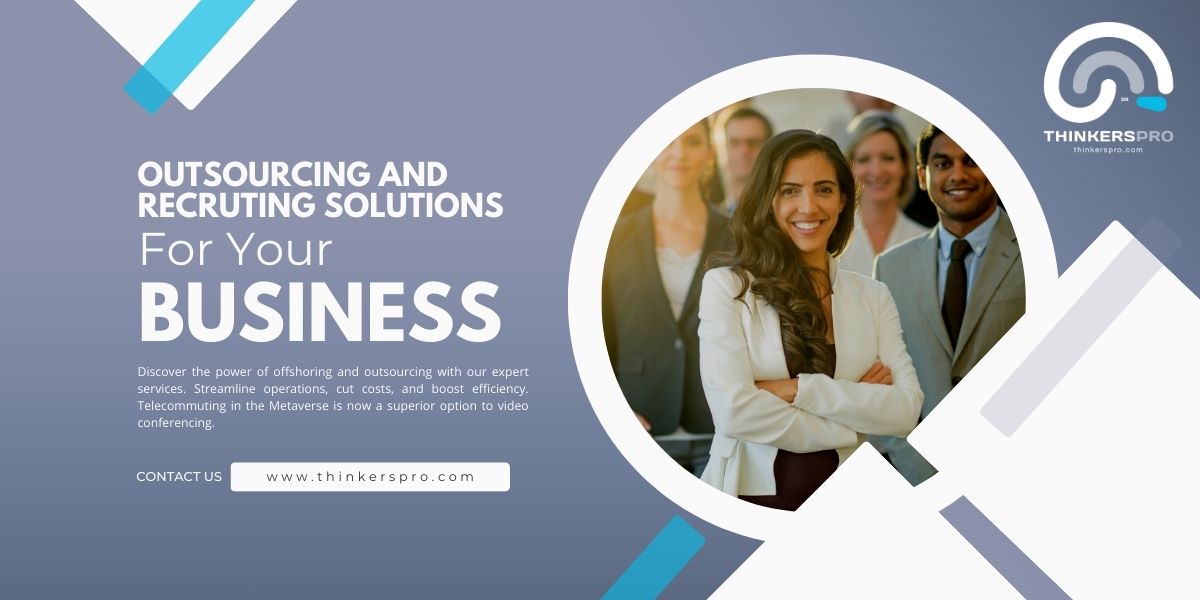
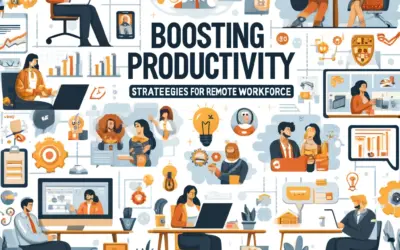
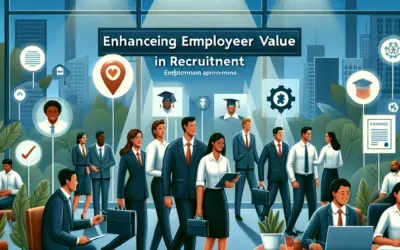
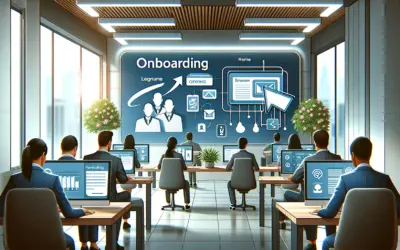


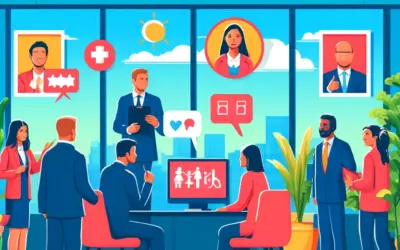




0 comentarios